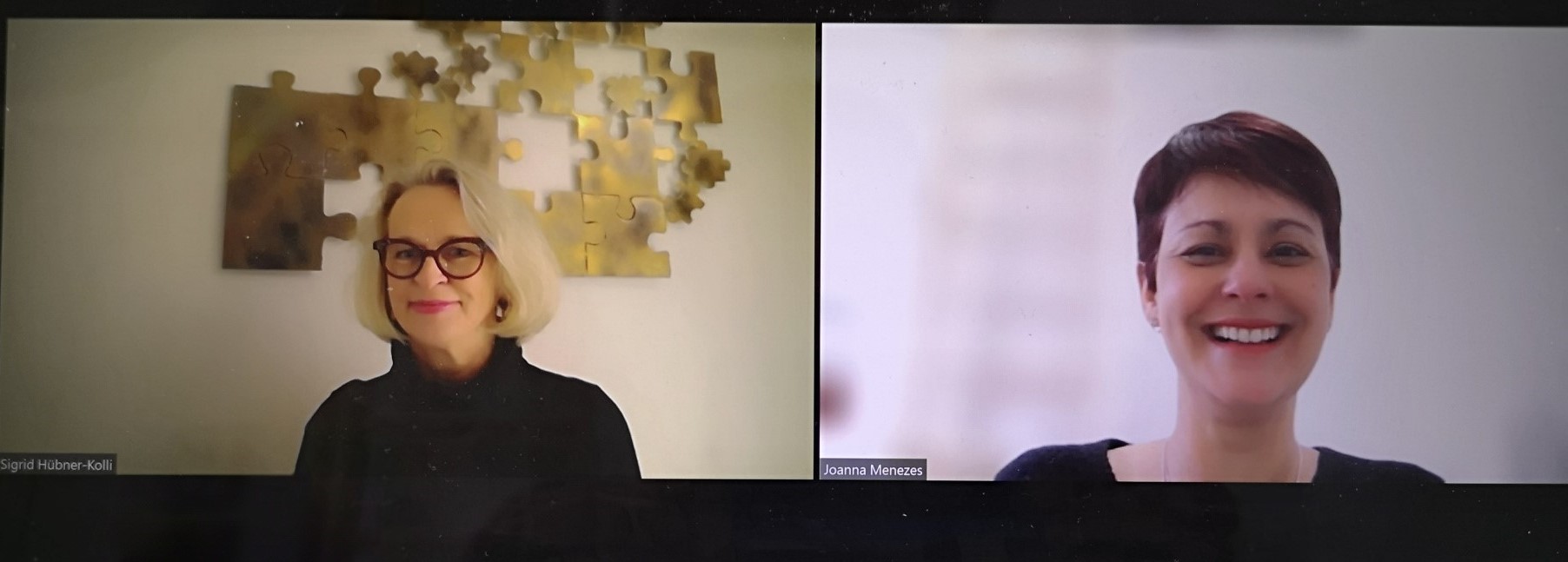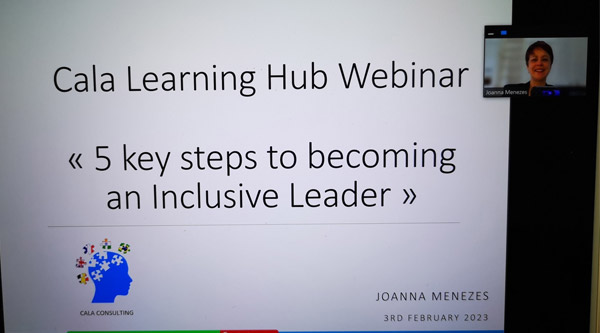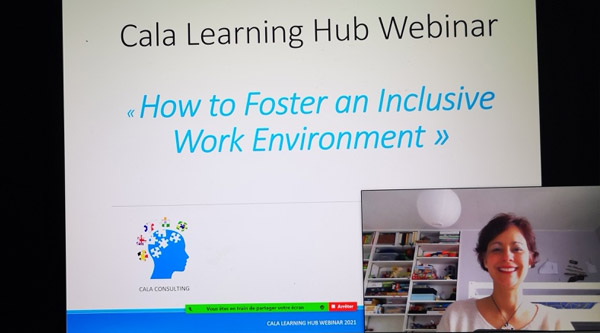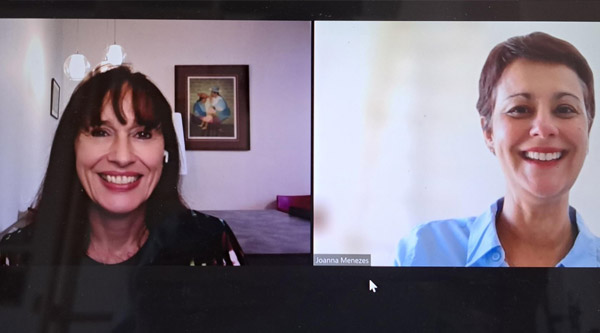Do you really know how to listen to your employees? And give them feedback, whether positive or negative? This is not always easy... But when you are an inclusive leader, i.e. the head of a diverse team, you need several qualities. "First of all, you need to know yourself well by using tools such as the Process Communication Model, DiSC or the Enneagram; and you need to know how to question yourself and bring together all the ideas of your team," explains coach Sigrid Hübner-Kolli, who led the webinar. "But you also need to develop soft skills such as active listening and how to give feedback". About 40 members of the Cala Learning Hub network came to learn more about the subject.
Active listening : an essential skill that creates a climate of trust and openness
Well known to therapists and coaches, this technique - also called "compasionnate listening" - was developed by the American psychologist Carl Rogers. It involves listening carefully to the verbal (words), para-verbal (voice intonations) and non-verbal (body language) messages of the person one is talking to. In order to understand what is being communicated, this listening must be reinforced by the reformulation of the words and expressions. "Sometimes, silence can also be extremely powerful," comments Sigrid Hübner-Kolli. "The speaker then feels really listened to and in confidence".
"To make active listening even more effective, it is important to be sincere, respectful and non-judgmental," she continues.
Positive, critical or collective feedback: a beneficial exercise for all
All managers must give individual feedback to their employees (who can also give feedback to the manager). When this feedback is positive, the most important thing is to be an active listener, to reformulate any difficulties encountered by the person and to value the qualities that the employee has developed. In this case, Sigrid Hübner-Kolli gives some advice: give feedback quickly, express yourself with "I", focus on facts and figures, avoid adding criticism...
In the event of a mistake, a leader may also need to give critical feedback. "In this case, it must also be done as soon as possible," explains the coach. "But you have to prepare yourself beforehand for the reactions of the person you are dealing with (anger, denial...) and make sure that you are feeling confident and not feeling judgemental towards that person".
When it is a question of collective feedback addressed to a team, for example, the procedure to follow is to recall the initial objectives, to insist on the efforts and difficulties encountered during the time elapsed, to mention all the contributors to the project, to congratulate them and to celebrate the good results with a festive or convivial moment. "All this depends on the company's culture and of course requires training," concludes Sigrid.
If you want to participate in our future free webinars, check our program and save the date!

Blog article written by par Laure Blancard : https://www.linkedin.com/in/laure-blancard/







 Copyright © 2016 - 2024 - Cala Consulting
Copyright © 2016 - 2024 - Cala Consulting